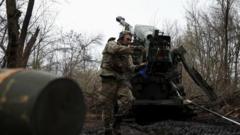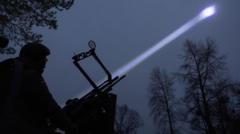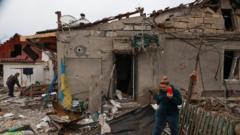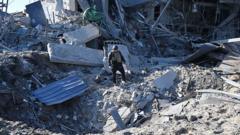The shift towards increased military investment in Europe, significantly influenced by the ongoing Russia-Ukraine conflict and changing U.S. policy under Trump, sees a resurgence in European arms production and international arms deals.
Europe's Defense Renaissance: Capitalizing on Changing Global Dynamics

Europe's Defense Renaissance: Capitalizing on Changing Global Dynamics
As geopolitical tensions rise, European defense manufacturers are adapting to a new landscape by boosting arms production and seeking international partnerships.
Europe's defense industry is experiencing a remarkable transformation as the geopolitical landscape shifts and demands for military capabilities rise. With tensions exacerbated by the ongoing Russia-Ukraine conflict, countries across the continent are reevaluating their security strategies, significantly diverging from the decades of post-Cold War prioritization of social investments over military spending.
March 2025 witnessed the successful takeoff of two Eurofighter jets from the Italian city of Turin, heading towards Kuwait, a notable acquisition for the Kuwaiti military—its very first purchase of these advanced supersonic fighters from the Leonardo defense group. This marks a significant milestone not only for European defense manufacturing but also for the international arms trade as Europe accelerates its production capabilities in a newly competitive global market.
The demand for weaponry surged following Russia's invasion of Ukraine in 2022, propelling European military spending to new heights. Countries such as Poland and Turkey are now eyeing multiclass contracts for the Eurofighter Typhoon, opting for European models over traditional American counterparts. This trend reflects a broader pivot in military procurement philosophies driven by recent geopolitical developments and fluctuating relationships with the United States.
Key industry figures, like Giancarlo Mezzanatto, an executive at Leonardo's Eurofighter project, express optimism that the perceived neglect and adversarial stance of former President Trump toward European partners could lead to increased procurement of homegrown defense technology. With a systemic shift in focus towards domestic capability building and international partnerships, European manufacturers are well poised to capture a larger share of the global defense market.
As economies reconsider their long-term security needs, the revitalization of the European defense sector presents an opportunity for nations to reduce dependency on U.S. military support, signaling a profound change in the dynamics of global defense collaborations.






















